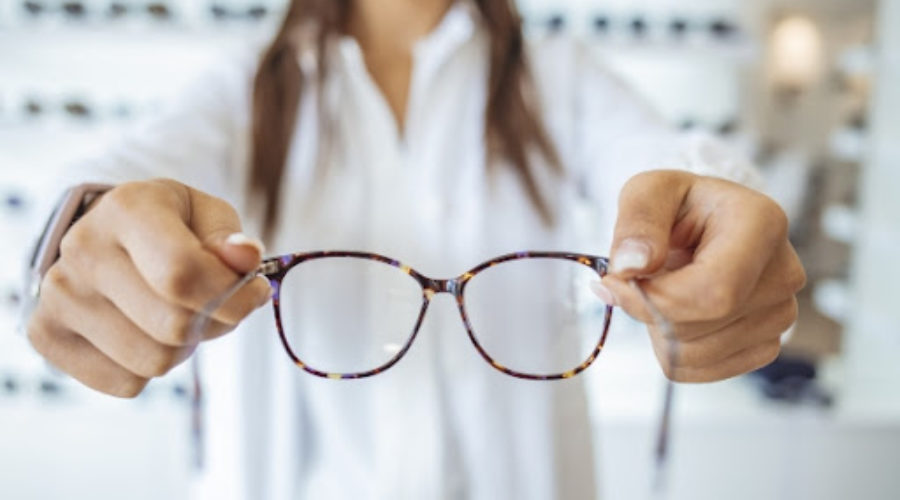
Regardless of your age or current vision, it’s wise to be proactive about protecting your vision. How much are your daily activities influencing your eye health?
The truth is that life can take a toll, and everyone will experience vision problems at some point. So whether you’ve been wearing glasses for years or still have 20/20 vision, it’s good to listen to recommendations from an experienced eye doctor.
The American Academy of Ophthalmology is an excellent resource for information. Or, a more straightforward solution is to talk to your eye doctor for unique vision tips relating to your specific needs.
Many vision tips apply to people of all ages. But there are also certain considerations for specific chapters in life. At EyesNY, we offer family-focused eye care. Here are a few suggestions we have to help you protect your vision and help your family members do the same.
Many health conditions are affected by family health history. If a particular issue runs in the family, then there is a higher likelihood that you will be diagnosed with that condition as well.
Talk to your doctor about eye-related conditions that your family members have, including siblings and parents. Many of these diseases have the best outcome when you are proactive about early treatments.
A child’s body is constantly changing as they grow, especially in the first few years of life. Good vision is critical to the child’s education and learning, which is why it’s recommended to schedule the first eye exam when the child is young.
Healthy habits and lifestyle factors can help the child maintain good vision for life. Not only should you teach your children about safety to protect the eyes, such as holding sharp objects pointing away from the face, but also help them see the connection between daily activities and health.
As a general rule of thumb, the things that are good for your child’s eyes are also good for their overall health. Encourage them to spend time outside instead of looking at a screen all day. Even though screentime doesn’t cause permanent damage to the eyes, it’s helpful for the child to have a variety of stimulations in the real world.
Help the child learn how to enjoy fruits and vegetables, which are packed with protecting nutrients and antioxidants.
It’s no surprise that people in this age group tend to spend most of their time looking at digital devices: phones, laptops, TV, and tablets. One smart step is for teenagers to learn how to take breaks during their screen time to give their eyes a rest.
Another factor is how the student is caring for their contact lenses. Now that teenagers or college students are gaining more independence, they are learning how to manage daily routines like brushing their teeth or washing their contact lenses.
Even when a student is tired from a late-night study session or time with friends, it’s important that they take out their contact lenses before sleeping. Neglecting contact lens care can result in eye infections – and when left untreated, these infections can lead to long-term vision complications.
If you have questions about the best ways to use contact lenses, talk to your eye doctor about the types of contacts you are using.
Most people start to notice vision changes around the age of 40. Since the eyes are changing during this time, it is more important to maintain regular checkups and vision screenings with an experienced eye doctor.
These appointments are designed to check your prescription and identify early stages for various eye conditions. These checkups are especially important for adults with other health conditions, such as diabetes, that can affect vision.
When you reach the golden years in life, it’s time to enjoy experiences with your family and relax in the lifestyle that you desire. Aging continues to affect eyesight, but it doesn’t mean that you need to suffer from vision problems.
For example, most people will develop blurry vision when they are looking at objects nearby (such as reading). This condition, known as presbyopia, can be corrected using glasses or contact lenses.
Your eye doctor will also ask about your overall health history to determine if any pre-existing conditions might make you more vulnerable to eye problems. Additionally, tests can be done to assess the risk of more serious eye conditions, such as macular degeneration and cataracts.
In addition to the age-specific tips listed above, consider these specific things that can help the entire family protect their eyes.
Seemingly harmless activities at work, school, sports, and home can cause life-changing eye injuries that affect a person’s vision. Sometimes, the risk of injury increases when a person is comfortable in their daily activities. For example, bleach cleaners or oven spray can cause permanent damage if they come in contact with the eye’s surface.
Other hazards include spattering oil while cooking, garden equipment, power tools, and home improvement activities. It’s best to wear eye protection whenever you are doing something that could poke your eyes or fling something into your eyes.
Considerations should also be taken at work, such as taking breaks when looking at a computer screen all day or wearing protective glasses if you use heavy equipment. It’s easy to put on goggles or physical eye protection, and this simple step can save you from sudden vision loss.
Also, consider the way your daily habits are influencing your eye health. Dietary choices not only help to reduce the risk of health conditions that can result in eye diseases (such as diabetes), but your food choices also provide your body with essential nutrients that your eyes need to thrive.
Other lifestyle factors can affect your eyes, such as smoking. Cigarette and cigar smoke increases the risk of many eye diseases. If you are smoking, then set a goal to stop. If you don’t smoke, then be proactive about avoiding secondhand smoke.
Finally, consider your eye health when using makeup and other cosmetic products. For example, change out your mascara regularly to avoid bacteria that can be present in the makeup. Also, avoid sharing makeup products with other people.
If you are interested in learning more about the ways you can protect your vision, then schedule a consultation with an eye doctor at EyesNY. You can choose from any of our convenient locations to find an office that is close to home. So call today at (518) 791-5725 for an eye examination appointment.
Malta
658 Malta Ave., Ste 101
Malta, NY 12020
Phone: (518) 580-0553
Saratoga Springs
414 Maple Ave Ste 200
Saratoga Springs, NY 12866
Phone: (518) 580-0553
Clifton Park
1712 U.S. 9
Clifton Park, NY 12065
Phone: (518) 580-0553
Queensbury
535 Bay Road
Queensbury, NY 12804
Phone: (518) 580-0553
Troy
2200 Burdett Street Ste 206
Troy, NY 12180
Phone: (518) 580-0553
